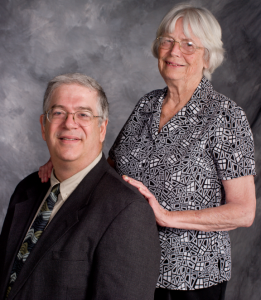IBM Research
Age Matters
December 7, 2016 | Written by: Sam Adams
Categorized: IBM Research | IBM Watson
Share this post:
Today, most people can expect to live into their seventies and beyond. According to a US Census Bureau report, within the next 15 years the world will have close to a billion people over the age of 65, and for the first time in human history, people aged 65 and over will outnumber children under age 5 sometime before 2020.
Our health and well-being lie at the center of this massive shift in demographics. Many of these people will have physical impairments (loss of hearing, eyesight or mobility) or dementia or Alzheimer’s and need an increasing amount of care.
My own mother, Joyce, is 87 years old and lives at home with me and my wife. She is able to look after herself but suffers from severe short-term memory loss, although she has yet to be diagnosed with a degenerative neurological condition. Over the years, I have become acutely aware of the issues that affect elders and the people looking after them.

Sam and Joyce Adams.
Most global decision makers in commercial and government organizations are dealing with the same situation: caring for aging parents while balancing care for their own families and managing their careers. Extending and improving the quality of life for the elderly is not just a personal issue; it’s critical to IBM’s future. That’s why we’re tackling this massive issue.
IBM, with its heritage and leadership in developing accessible solutions for people with disabilities, is in a unique position to help our clients navigate their way through what is becoming one of the greatest demographic shifts to face mankind. It is predicted to reshape every industry and even the global economy itself.
According to a study from the Consumer Technology Association and IBM, addressing the many issues facing our elders will require a comprehensive approach and new ecosystems of caregivers and businesses that serve them. Healthcare is a large portion of this, but insurance and finance also play a crucial role, as does social care and keeping the elderly engaged in their family and society.
Our goal is to help the world’s aging population live in their own homes longer, to the fullest of their abilities, by building smart homes and environments that use sensors, Internet of Things (IoT) technology, robotic assistants and more. By applying cognitive computing and the power of IBM Watson, and our investments in Watson Health and Watson IoT, we can create new solutions in Cognitive Eldercare.
We want to augment elders’ living environments so they can live safely and independently for as long as possible, but also predict and identify when changes happen that may signal a transition – more help in the home, medical assistance, or the move to an assisted living facility. Transitions like this can be dramatic, stressful, and very costly, so we want to do it in such a way that it can be planned and supported by insights and evidence that help elders and their family make more informed decisions.
To help the elderly age at home longer, IBM is collaborating with Rice University on robots for cognitive eldercare that will track and monitor vital activities and general health status in the day-to-day life of seniors much like an in-home human caregiver would.
In addition, by combining the data from smart homes and wearables, as well as healthcare, financial and social data, we can begin to create a holistic model of an individual’s life, environment and behavior. It’s akin to transforming the home itself into a personal assistant that can detect changing patterns and provide insights about an elder’s daily activities, their finances and social relationships. Insights can be shared with caregivers, doctors, families and other advisors to provide a regular assessment on how they’re doing.
To further our research in this important area, we have opened an “Aging in Place” environment at the IBM Research – Austin Think Lab that demonstrates our capabilities and will help us better understand how real-time data coming from atmospheric, audio, olfactory and motion & falling sensors can better help manage health and wellness as physical or environmental conditions change.
IBM is committed to addressing the challenges of our aging population and working with university and business partners to create solutions that better manage everyday activities, extend their independence, and enrich their quality of life.

Distinguished Engineer & Master Inventor, Aging Strategic Initiative, IBM Research
Meet the Newest IBM Fellows
Since the first class of IBM Fellows in 1962, IBM has honored its top scientists, engineers and programmers, who are chosen for this distinction by the CEO. Among the best and brightest of IBM’s global workforce are 12 new IBM Fellows who join 293 of their peers who have been so recognized over the last […]
How IBM is Advancing AI Once Again & Why it Matters to Your Business
There have been several seminal moments in the recent history of AI. In the mid-1990s, IBM created the Deep Blue system that played and beat world chess champion, Garry Kasparov in a live tournament. In 2011, we unveiled Watson, a natural language question and answering system, and put it on the hit television quiz show, […]
IBM Watson Makes the GRAMMYs Pop
I am a child of the ’80s, raised on a steady diet of fruit rollups and music videos. My most enduring memories of high school are set at my girlfriend’s house, sitting in her den, watching the videos that became the soundtrack of our relationship. At the time, I was convinced that music videos were […]


